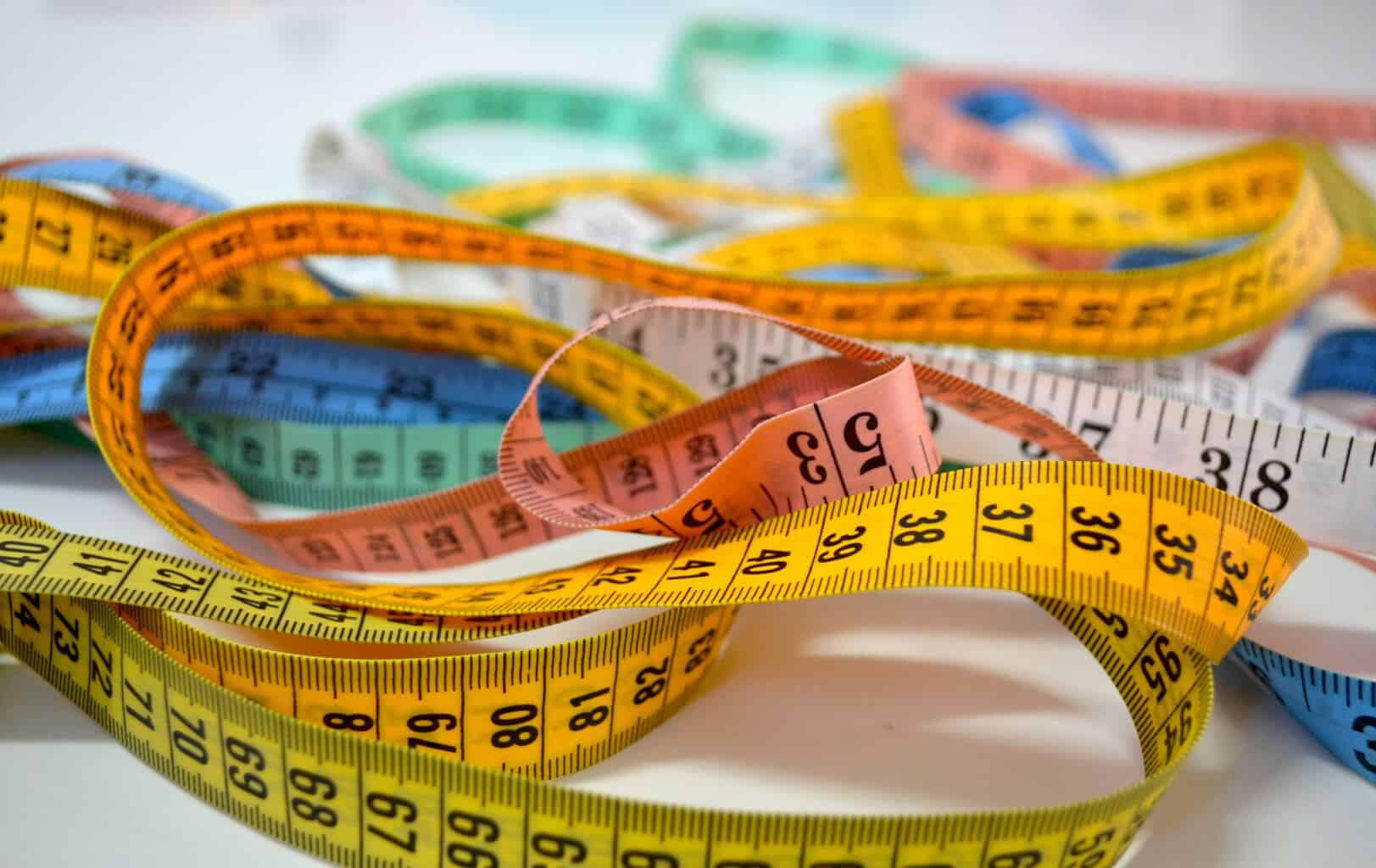- PhentermineLearn more about phentermine and how to get the most from your weight loss journey.
- ResourcesAdditional information and tools to help you make the most of your effort.
- AlternativesLearn more about the most popular weight loss medications and science-backed supplements
Why It Is Better To Lose Weight Slowly
Published on December 9, 2024

Tons of diets claim they’ll help you shed weight at lightning speed. It’s tough to resist the urge to cut way down on food and take on brutal exercise routines when you hear you’ll slim down fast.
But should you really follow the path towards a fast weight loss? Should you choose to lose 10 pounds in a week or should you choose to lose the very same 10 pounds over the course of 10 weeks? Yes, it is many extra work, but is it worth it? Is the slow weight loss preferred compared to the fast weight loss? Let’s find out!
Why it is better to lose weight slowly
When you are looking into the idea to lose weight, you would like to choose a plan that allows you to lose your excess weight easily and efficiently, but also healthy, which is the part that most of us tend to forget it. A healthy weight loss requires many time, persistent motivation, and patience, only to later produce results that we are proud of. But time, motivation, and patience are not what all of us have to offer. So what do most of us do? They choose diet plans that offer fast and effective weight loss in just a few weeks, if not days. The question is – “Are those diet plans really effective?” And also – “Is your health put in danger in any way in the process of weight loss?”.
You might not want to hear this, but slow weight loss is what is and should always be preferred. No matter if you are looking to lose weight for your own health or for your own body image, you should always choose the long run when it comes to losing weight, but also preserving your health as a part of the process. A healthy weight loss is considered to be the elimination of 1 to 2 pounds per week, whereas fast weight loss is considered to be losing anything above that (1, 2).
It is not that both slow and fast weight loss will not produce the same results, because they will – both processes will help you lose the extra weight that represents a problem for you. But you should not forget about preserving your health in an optimum condition as a part of that process as well.
There have been multiple scientific studies comparing the results of a fast and a slow weight loss, and most of them proved what we said before, but they also proved that the same results regarding our physical and mental health are not to be expected as well (3).
To better understand what we are telling you, let’s look into the many beneficial effects of a slow weight loss, but also, into the many potential dangers that hide behind a rapid weight loss.
What are the benefits of a slow weight loss?
If you are ought to put your time, motivation, and patience into this, we ought to tell you what is waiting for you at the finish line, apart from the elimination of the excess extra pounds of course! Take a look into the promised beneficial effects that come with a slow, healthy weight loss.
Long-term weight loss effects
When you consider losing the excess body weight, you should never think only about the short-term effects, and you should always look for a plan that will deliver long-term effects as well. After all, you would not want all of your effort to go to waste, do you?
When you are choosing to lose weight fast, what you are actually losing is water weight or muscle, since there is not enough time for the extra body fat to get burned. That is why, a fast weight loss will most probably not eliminate your belly fat, and you will, despite your greatest efforts, end up with still with your belly hanging. In addition, a fast weight loss does not teach you about any healthy lifestyle habits, which is why, as soon as your weight loss plan has ended, you are most likely to gain the lost weight back very quickly. You see, investing the time, patience, and motivation in a slow, long weight loss plan is the only way to create healthy lifestyle habits that will help you improve your health, body image, and weight once and for all (4, 5).
A safe way to lose weight efficiently
We cannot stress this enough, but you need a diet plan that will allow you to lose weight and also preserve your health untouched in the meantime. You need a safe way to lose weight that will not put your health or life in danger, but how to do that?
Fast weight loss brings many potential health risks and issues of which we are going to talk about in a little bit. But know this – slow weight loss has this great advantage protecting and improving your overall health, so it is safe and effective method. This should be a priority for you at all times, the same as losing weight is. After all, you would not want for the method that you have chosen to improve your health, to end up causing reverse effects at the end, do you?
Prevents muscle loss
When you are spending time planning your meals and working out in the gym, for the purpose of losing weight, the last thing that you would like is to lose muscle mass despite all of the long hours spent at the gym, would you not?
We mentioned earlier that what you are actually losing through a fast weight loss is water weight or very probably – muscle mass. And you should do whatever you can to prevent that from happening. After all, the formation of lean muscles as a part of the weight loss process is what adds up a little sparkle to your new and improved body image. You should never risk losing any muscle mass, and yet, that is what a fast weight loss will bring you closer to. Choosing a slow weight loss plan, on the other hand, is what will only make you create strong, lean muscles with the help of regular workouts and a healthy, well-balanced diet plan, through the course of several weeks (6).
Prevents loose skin from forming
Loose skin is just one more thing that you should be afraid of when encountering a fast weight loss plan. You would not like to stare in the mirror, looking at your loose skin and wondering where did you go wrong while trying to lose weight.
Our skin needs time to adapt to the new changes that have happened. Five days or 5 weeks is not enough time for our skin to adapt, and instead, loose skin is what is forming. You will notice as loose skin has formed on your belly, arms, legs, and other parts of your body. Losing weight slowly is what will keep loose skin from forming as it will allow enough time to adapt to the new-made lifestyle changes without causing any wrinkles or sag to happen.
Prevents and reduces fatigue
If you want to lose weight fast, you may need to put your body through exhausting hours at the gym and dangerous calorie deficits. This, of course, will cause fatigue to develop. Fatigue will influence your everyday life, causing its quality to a noticeable drop.
And then we have slow weight loss with its well-balanced diet, all of the nutrients that our body seeks, and well-planned workouts at the gym, to help us lose weight and protect ourselves against chronic fatigue. Losing weight slowly also means to be able to take part in all of your everyday activities and complete all of your daily tasks without experiencing fatigue and tiredness as a result of your weight loss (7).
As you can see, there are many beneficial effects that a slow weight loss offers and on which you should definitely not miss out on. Perhaps fast weight loss is great for immediate visible results, but slow weight loss is what guarantees you long-term weight loss effects, improved health, and a satisfying body image. Even though the slow weight loss asks more commitment, it is important to know that what actually teaches you is the importance of a healthy diet, regular physical activity, and many other healthy habits that will only help you to improve your life and health for the better.
What are the dangers of losing weight too quickly?
Seeing the bigger picture is what matters when it comes to a fast weight loss, not just enjoying the fast achieved results instead. Quickly visible results are great, but the potential health risks that come with them is what you should fear.
We mentioned how a fast weight loss causes muscle mass to be lost, instead of body fat, which is one great disadvantage that you should consider. You should also know that a fast weight loss causes your metabolism to slow down. Eating fewer calories throughout the day means burning fewer calories over time. And a slow metabolism is definitely not a friend to the weight loss process, as it causes fewer calories to be burned. Most fast weight loss plans require ridiculously dangerous calorie deficits allowing only about 450-500 calories a day. That will only expose you to nutritional deficiencies with potential health risks (8).
Extreme fatigue, hair loss, weak bones with an increased risk of osteoporosis and common fractures, and anemia are just some of the risks as a side-effect of the nutritional deficiencies. Diarrhea, constipation, dizziness, headaches, irritability, and muscle cramps have all been listed as side-effects of the well-known crash-diets as well through multiple scientific studies (9). There are more dangers that you can count compared with the benefits that you are gaining in return, so we would definitely recommend choosing a slow weight loss plan rather than a rapid one.
Conclusion
In conclusion, not only is the slow weight loss more effective and scientifically backed up with proof, but its positive effects on our health are inevitable. In addition, fast weight loss is not only less effective considering long-term weight loss effects, but it is also potentially threatening to your health and life. Slow metabolism, hair loss, anemia, fatigue, and weight gain are just some of the potential risks that come with a fast weight loss that you should fear. We highly recommend choosing a slow weight loss over any fast weight loss plans, low-calorie diets, and whatever that it is that promises you fast weight loss results.
References
(1) https://www.cdc.gov/healthyweight/losing_weight/index.html
(2) https://www.nhs.uk/live-well/healthy-weight/should-you-lose-weight-fast/
(3) https://www.ncbi.nlm.nih.gov/pmc/articles/PMC5702468/
(4) https://www.livestrong.com/article/248435-why-is-slow-weight-loss-better-than-quick-weight-loss/
(5) https://onlinelibrary.wiley.com/doi/full/10.1002/oby.21346
(6) https://www.webmd.com/diet/guide/rapid-weight-loss#1
(7) https://onlinelibrary.wiley.com/doi/full/10.1038/oby.2001.134
(8) https://www.ncbi.nlm.nih.gov/pubmed/10378389
(9) https://www.healthline.com/nutrition/7-common-nutrient-deficiencies


